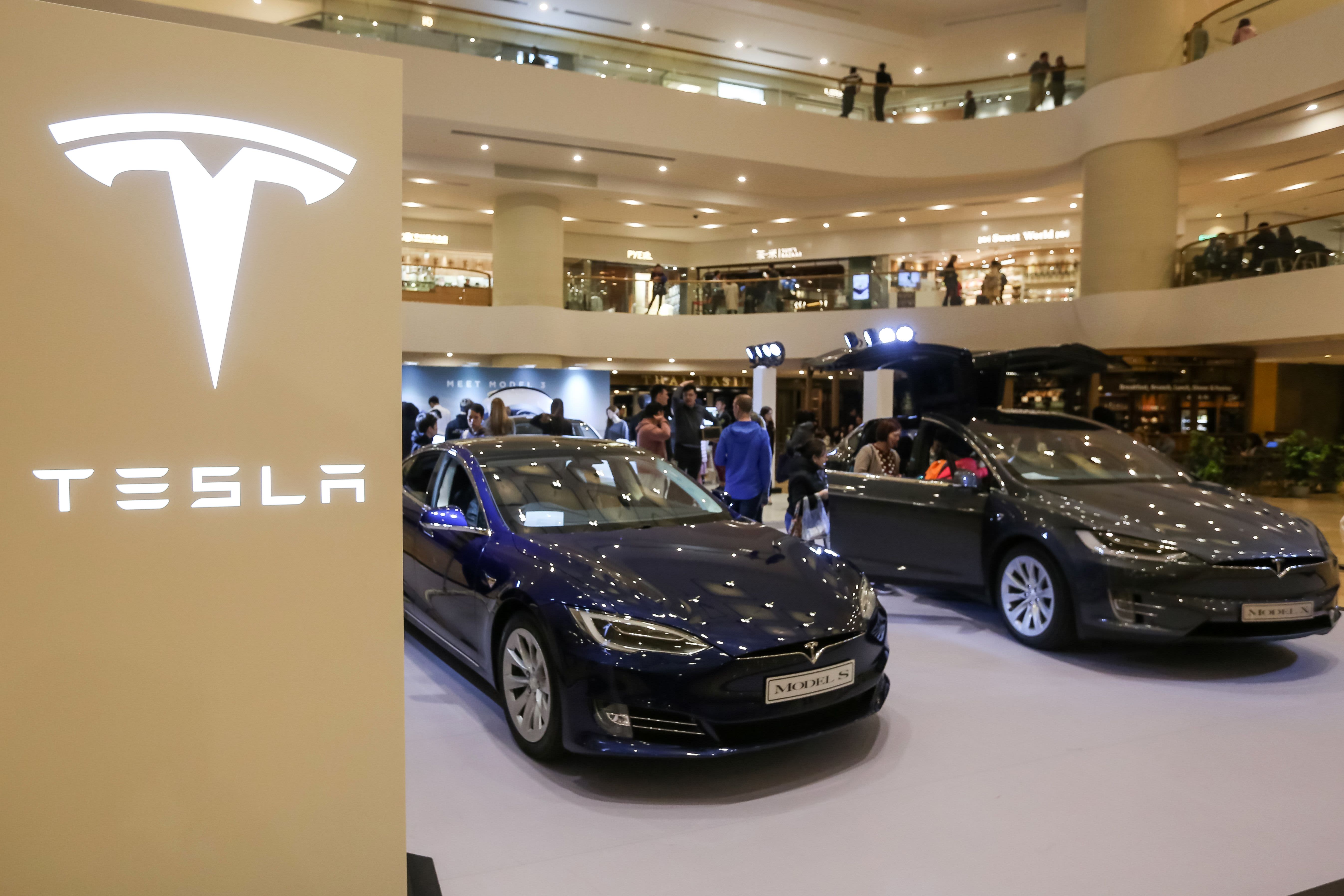A Tesla Model S (L) and Model X are displayed at a shopping mall in Hong Kong on March 10, 2019.
Vivek Prakash | AFP | Getty Images
Tesla is recalling up to 48,442 of its Model S and Model X electric vehicles, which were made in the U.S. and sold to customers in China, over potentially faulty and unsafe front and rear suspensions.
The China State Administration for Market Regulation announced the recall Thursday night.
Tesla’s share price was down nearly 2% on Friday.
China’s auto industry news site, Gasgoo, reported that the recall affects 29,193 imported Model Ss and Model Xs, produced between Sept. 17, 2013, and Aug. 16, 2017, and 19,249 imported Model Ss produced between Sept. 17, 2013, and Oct. 15, 2018. The cars were produced at Tesla’s Fremont, California, vehicle assembly plant.
The U.S. vehicle safety authority, the National Highway Traffic Safety Administration, has not said whether a similar recall in the U.S. may be necessary.
The Chinese agency has ordered Tesla to replace the rear linkages of their left and right front suspension and the upper linkages of the left and right rear suspension with an improved one for all the cars that are part of the recall at no cost to the owners.
In 2016, Tesla CEO Elon Musk defended himself against similar complaints of potentially unsafe or faulty suspensions in the Model S in the U.S.
At that time, Musk declared on Twitter and in a corporate blog post that NHTSA “found no safety concern with the Model S suspension and have no further need for data from us on this matter.” He also claimed that complaints about suspension issues to NHTSA were fabricated.
Tesla did not immediately respond to requests for comment.
In a statement e-mailed to CNBC, the NHTSA said:
“NHTSA is aware of the Tesla recall due to suspension problems in China. At this time, the agency has not received significant complaints related to these issues in the United States. The agency is in contact with Tesla and monitoring the situation closely, and will not hesitate to take action to protect the public against unreasonable risks to safety. If you think your vehicle may have a safety defect that isn’t part of a current recall, contact NHTSA.”
In China, this is Tesla’s fourth recall of cars exported from the U.S. Earlier recalls in China involved replacing faulty airbags made by Takata and fixing or preventing steering problems.
The NHTSA sent CNBC a copy of a letter that Tesla attorney Elizabeth Mykytuik sent about the recall, disputing the notion that the Model S and Model X vehicles had faulty suspension links.
Tesla instead blamed the issue on “driver abuse,” writing, “driver usage and expectation for damageability is uniquely severe in the China market. If the customer inputs an abuse load (e.g., curb impact, severe pothole strike, etc.), then the parts may be damaged, leading either to immediate failure or delayed failure from the compounding effects of the initial abuse and subsequent load input.”
While Tesla told NHTSA it disagreed with China’s regulators, it said the company is doing a voluntary recall there anyway to avoid “carrying a heavy burden through the Chinese administrative process.”
According to the letter, Tesla first met with Chinese regulators on Aug. 24, agreed to a voluntary recall by Aug. 27 and filed a formal notification about it in China on Aug. 28. Just a few days later, on Sept. 1, Tesla would announce — without discussing this recall with shareholders — that it was raising $5 billion in an at-the-market offering.
Tesla’s made-in-China Model 3 electric sedan is the best-selling battery electric model in China this year. The China Passenger Car Association reports that Tesla sold 79,908 units of the made-in-China Model 3 sedan during the first nine months of 2020.
Tesla recently began exporting some of those made-in-China Model 3s to Europe.

